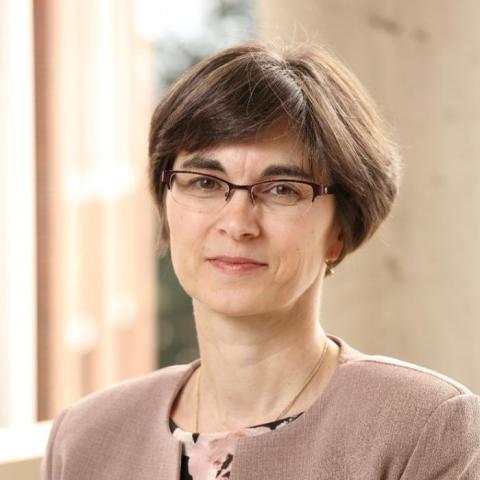- People
- Research
- Graduate
-
Undergraduate
- Prospective & Transfer Students
- General Chemistry Options
- Policies
- Tutors
- Pre-Health
- Undergraduate Advisors
-
Chemistry Major
- Process for Declaring a Major, Minor, DMP, or ACS Certification
- B.A. in Chemistry
- B.S. Chemistry
- B.S. Specialization in Biochemistry
- B.S. Specialization in Chemical Education
- B.S. Specialization in Chemical Physics
- B.S. Specialization in Environmental Chemistry
- B.S. Specialization in Materials Science
- B.A./M.S. or B.S./M.S. in Chemistry ("3+1" Degree Option)
- Undergraduate Research
- Distinguished Majors Program
- Minor
- Forms
- Study Abroad
- Undergraduate FAQs
- Undergraduate Resources
- Safety
- Seminars
- Newsletter
Laura Serbulea

Professor of Chemistry, General Faculty
Research Interests
Organic chemistry; computational modeling of ligand-receptor interactions
Office Address/Hours
Room 469, Chemistry Building
Advisor
Undergraduate
Education
B.S. University of Bucharest, Romania, 1989
Ph.D. University of California, Los Angeles, 2009
Awards and Honors
- Laura Serbulea recipient of All-University Teaching Award
- Mead Honored Faculty, 2015
Biography
Professor Serbulea is teaching organic chemistry courses, including the accelerated organic chemistry lectures and laboratories. She is actively involved in the development of the organic chemistry curriculum, focusing on improving the coordination between the topics in the lecture course and the experiments that are carried out in the laboratory. In the accelerated organic chemistry laboratories, students gain hands-on experience in the synthesis, purification, and characterization of organic compounds using modern analytical instruments and laboratory equipment.
Laura Serbulea earned her undergraduate degree at the University of Bucharest, Romania, and received her Ph.D. in Chemistry from University of California, Los Angeles. She joined the faculty at the University of Virginia in 2012. Her research interests are in the area of computational drug design targeting G-protein coupled receptors, and investigation of organic reaction mechanisms using computational methods.